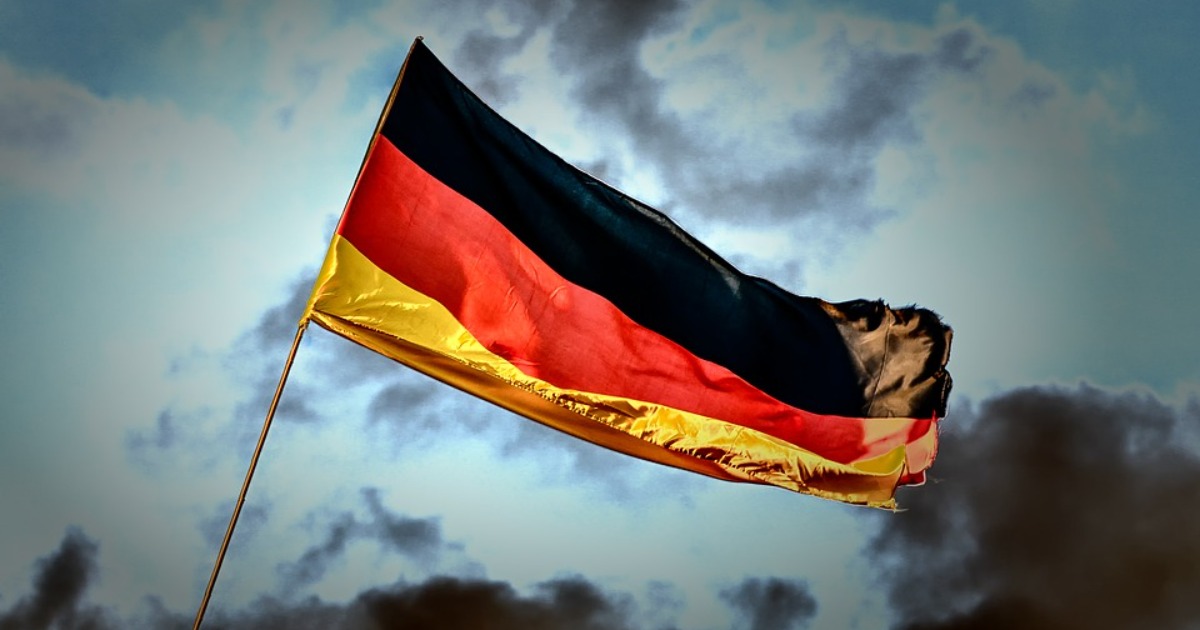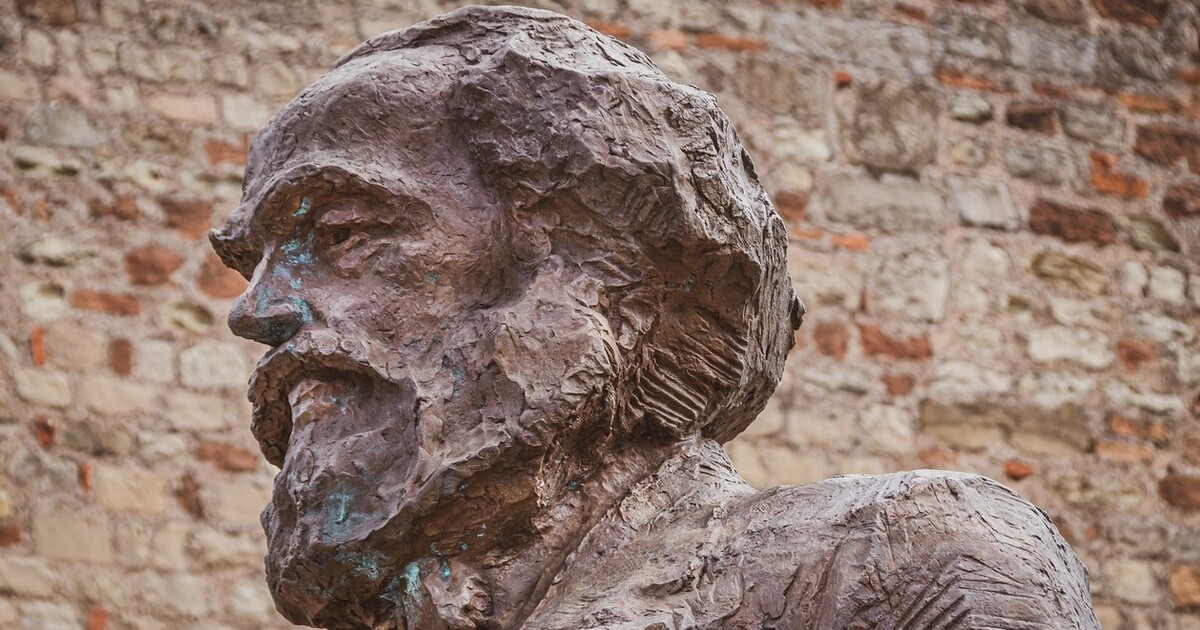My Late Father, the German-Indonesian
Trauma and historical memory in Germany and Indonesia.
May 26, 2021

Seriousness, steadfastness, discipline, dutifulness, respect for history, disdain for ostentation and self-promotion – those were the qualities my late father, Mustafa Pamuntjak, possessed.
Born in Jakarta in 1932, he spoke Dutch before he could speak Bahasa Indonesia. He went to high school and university in the Netherlands, before spending his most edifying years as a student of architecture in Berlin in the 1950s.
My father came from a Dutch-educated intellectual family and was used to the beauty of books and the rigor of scholarly learning.
To me, my father had always been more German than anything else. It was what made him so singular, yet so lonely in his own homeland.
German values
My father’s Germanic belief in structure and planning, his love of order and precision and his low tolerance for incompetence did not make him, I have to admit, the easiest person to deal with.
But in the 1970s and 1980s, the corrupt and opportunistic Suharto era that I grew up in, my father’s artistic and personal integrity stood out like a flaming candle.
German influence across generations
It was not until 2004, when I began my first novel, “The Question of Red,” I realized how much my father’s seemingly unflappable qualities had influenced my life and my work.
The novel was a love story. But it was set against the backdrop of the state-sponsored massacre of Communists that took place in Indonesia between 1965 and 1968. Up to one million people died.
The novel gradually emerged from the many evenings spent at the dinner table, discussing current affairs and world history with my parents.
This included the horrors of the Holocaust and the painful reinvention of the German identity after the Berlin Wall was erected in August 1961. The wall went up only four months before my father returned to Indonesia.
I gave the male protagonist of my novel, Bhisma, my father’s German past.
In fact, I gave him almost all of my father’s life story, up to his return from Berlin to Jakarta in the early 1960s.
Personal crisis and memory
In early 2016, I started writing the sequel to “The Question of Red.” It is titled “Fall Baby.”
The germ of this sequel lay in the notion that children often cannot escape the fate of their parents, no matter how hard they try. The pain of historical trauma inevitably spreads from generation to generation.
German influences
In writing it, I was also influenced by the words of Herta Müller, the Nobel Prize-winning author. “It often becomes the child’s task to mourn because the parents can’t or they have their limits. They survived, but they are frozen, holding their breath for forty years, not really alive. It is the job of the children, representing the dead.”
Suddenly, all the German influences I had grown up with came back to me at gale force.
Upon starting the novel, there was no doubt in my mind that my new home had to be Berlin.
Historical memory
The greatest debt I owe my father is his habit of “taking refuge in history,” as he liked to call it.
He often joked that it was a particularly German trait. Although much of his own history, particularly growing up in Indonesia during the last thirteen years of Dutch occupation (1602-1945), the Japanese occupation (1941-1945), and the four-year upheaval following the Dutch attempt to recolonize Indonesia (1945-1949), had made him a naturally eager student of history.
Even though he was a self-professed anti-communist, my father urged me from a young age to question the veracity of the Suharto regime’s anti-communist propaganda.
Anti-communist propaganda
What I learned at school throughout the 1970s and 1980s was a very ‘black’ and ‘white,’ ‘good’ versus ‘evil’ version of history.
In that telling, the army were the good guys, the communists the devils. The Indonesian Communist Party masterminded the murder of six army generals and one lieutenant. As a result, all communists deserved to be exterminated. Or so this logic went.
Ambiguity
Years later, when I was working on “The Question of Red,” my father asked me if I would write about people whose ideological positions were not always clear but whose hearts were always in the right place.
“Because people are not black or white,” he said.
The sentiment came to infuse my novel.
Coming to terms with violent pasts
In 2015, during my German book tour for The Question of Red, I began to comprehend what my father meant by ‘taking refuge in history’ in the context of Germany.
In every city—be it Hamburg, Bonn or Göttingen — almost all my events were packed. People turned up. There were tremendous curiosity and empathy.
The audiences were drawn by the grand themes of the novel and the commonalities they saw with their own memory of the Holocaust.
Violence and collective memory
They reflected on what violence did to the individual and the collective memory, how to heal the wounds of genocide and give justice to the families of the victims.
Soon enough, it dawned on me that here are two nations -– Indonesia and Germany -– with so little shared history yet enjoined by the experience of national trauma.
Even though few people realize it, this makes the world’s third-largest democracy and Europe’s biggest economy emotionally and spiritually at one.
Messaging my father at home
Sometime during my book tour, I texted my father: “People are so generous here. Many of them never even heard of Indonesia. And yet they came.” My father’s reply arrived swiftly: “Well, I guess that’s why you’re there.”
We still texted each other after I moved to Berlin the following year to write Fall Baby. His health was deteriorating and his spirits were low.
Yet every time I raised the subject of rising intolerance in both countries – the encroachment in Indonesia of conservative values and the rise in Germany of right-wing extremist protest groups – he would be reminded of his sense of purpose and become animated.
Reflections
My father passed away last December in Jakarta. I no longer live in Berlin. But like him, I carry him and his two homes in my heart and my writing.
Takeaways
#GlobalPairings: Indonesia and Germany are two nations with little shared history yet enjoined by the experience of national trauma.
Few people realize it but the world’s third-largest democracy and Europe’s biggest economy are emotionally and spiritually at one.
Shared histories: Both #Germany and #Indonesia are haunted by what violence does to the individual and to the collective memory.
The greatest debt I owe my father is his habit of “taking refuge in history,” as he liked to call it. He often joked that it was a particularly German trait.
As a novelist how do you write about people whose ideological positions were not always clear but whose hearts were always in the right place?
Shared trauma: #Germany and #Indonesia share the challenge of how to heal the wounds of genocide and give justice to the families of the victims.

